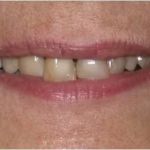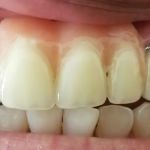Why Flossing Is Essential for Oral Health: The Benefits You Can't Ignore
- Introduction to Flossing
- Why Flossing Is Crucial for Oral Health
- Dental Problems That Arise From Not Flossing
- How to Floss Properly
- Real-Life Experiences and Flossing Success Stories
- Find More Information at Dentistry Toothtruth
1. Introduction to Flossing
Flossing is one of the most essential and underrated steps in maintaining good oral hygiene. For years, I was one of those people who brushed my teeth religiously but skipped flossing, thinking it wasn’t all that necessary. I was wrong. After a visit to my dentist, I realized just how crucial flossing is to prevent dental issues, which can quickly escalate into more serious health problems.
Flossing helps remove food particles and plaque from between the teeth, where a toothbrush can't reach. It’s an easy habit to adopt, yet it has a significant impact on the overall health of your gums and teeth. If you’re someone who doesn't floss regularly, you might want to consider making it part of your daily routine – your mouth will thank you for it!
2. Why Flossing Is Crucial for Oral Health
When it comes to oral health, brushing alone isn’t enough. I realized this the hard way. While brushing removes surface-level plaque and food particles, flossing is the only way to clean the areas between your teeth. These spaces are prime breeding grounds for bacteria, which can lead to serious issues like cavities and gum disease.
2.1. Reduces the Risk of Gum Disease
One of the most important benefits of flossing is the reduction in the risk of gum disease. Without flossing, plaque builds up along the gum line, which can irritate the gums and cause gingivitis – an early stage of gum disease. I personally had some swelling and bleeding of the gums when I hadn’t been flossing, which disappeared as soon as I incorporated flossing into my daily routine.
2.2. Prevents Cavities
Cavities often form between teeth where a toothbrush can’t reach. Flossing helps remove food particles and plaque from these hard-to-reach areas, preventing cavities from forming. I’ve seen firsthand how regular flossing prevents cavities and keeps my teeth cleaner longer.
2.3. Freshens Your Breath
Another benefit I’ve noticed since starting to floss is fresher breath. Food particles that get stuck between your teeth can lead to bad breath, but flossing helps keep your mouth clean and free from bacteria that cause odors. This simple step makes a huge difference in how my breath smells throughout the day!
3. Dental Problems That Arise From Not Flossing
When I neglected flossing for years, I didn’t realize the potential consequences. I now understand that not flossing regularly can result in a number of dental issues, some of which can become serious if not addressed in time. Let me share with you some of the problems that can arise when you skip this important step in oral hygiene:
3.1. Plaque Build-up
Without flossing, plaque accumulates between your teeth and along the gum line. This sticky film contains bacteria that can lead to gum inflammation, and over time, it hardens into tartar, which can only be removed by a dentist. I’ve had my fair share of tartar build-up before I started flossing regularly, and it’s no fun trying to get rid of it.
3.2. Tooth Decay
If plaque and food particles aren’t cleaned out between the teeth, they can break down the enamel and cause tooth decay. I was shocked to learn that cavities often form in between teeth where brushing doesn’t fully clean. Since I started flossing, I’ve been able to avoid this issue and maintain a cleaner mouth.
3.3. Gum Disease and Tooth Loss
If plaque isn’t removed by flossing, it can irritate the gums, causing inflammation, bleeding, and eventually gum disease. In advanced cases, gum disease can lead to tooth loss. I didn’t take my dentist’s advice about flossing seriously at first, but once I experienced gum irritation, I understood just how essential it is to floss.
4. How to Floss Properly
Flossing is a simple task, but it needs to be done correctly to get the full benefit. Here’s a step-by-step guide to help you floss properly and effectively, based on what I learned after my first few months of flossing:
4.1. Use the Right Amount of Floss
When I first started flossing, I used a very short piece of floss, which made it harder to maneuver. The right amount is about 18 inches, so you can use a clean section of floss for each tooth. It’s easy to do once you get the hang of it.
4.2. Gently Slide the Floss Between Teeth
It’s important not to snap the floss between your teeth. Instead, gently slide the floss between them to avoid hurting your gums. This took me some practice, but it makes a huge difference in how comfortable the process is.
4.3. Curve the Floss Around Each Tooth
Once the floss is between your teeth, curve it around the side of each tooth and gently scrape it up and down to remove plaque and debris. This technique ensures you clean each tooth thoroughly, which I found helped my gums stay healthy.
5. Real-Life Experiences and Flossing Success Stories
Real-life experiences can provide some of the best insights when it comes to the importance of flossing. I know several people who have had great results from flossing regularly. For example, my friend Susan had ongoing issues with gum bleeding until she made flossing a regular habit. After just a few weeks, the bleeding stopped, and her gums became healthier.
Another friend, Mike, had severe tooth decay in between his teeth due to skipping flossing for years. After implementing a consistent flossing routine, his dentist was impressed with the improvement. Mike told me that flossing truly made a difference in how he felt about his dental health, and he’s now a dedicated flosser.
6. Find More Information at Dentistry Toothtruth
If you’re interested in learning more about flossing and its benefits, I recommend visiting [Dentistry Toothtruth](https://familydentistryonline.net). They offer great resources on oral health care, including tips on flossing, proper brushing techniques, and much more.
Flossing is one of the easiest ways to ensure a healthy, beautiful smile. Don’t underestimate its importance – take the step today and see the difference it can make!







 Alpha Dental Excellence4.0 (829 review)
Alpha Dental Excellence4.0 (829 review) Rialto Dental Group and Orthodontics4.0 (222 review)
Rialto Dental Group and Orthodontics4.0 (222 review) Nainesh A Desai, DDS4.0 (14 review)
Nainesh A Desai, DDS4.0 (14 review) truDental of Auburn & Surgical Center5.0 (122 review)
truDental of Auburn & Surgical Center5.0 (122 review) Downer Place Dental & Orthodontics4.0 (634 review)
Downer Place Dental & Orthodontics4.0 (634 review) New Millennium Dental Group3.0 (30 review)
New Millennium Dental Group3.0 (30 review) The Importance of Oral Health Education During Pregnancy for a Healthy Pregnancy
The Importance of Oral Health Education During Pregnancy for a Healthy Pregnancy Best Tips for Brushing Your Teeth Properly for Healthy Gums: Essential Techniques for Oral Health
Best Tips for Brushing Your Teeth Properly for Healthy Gums: Essential Techniques for Oral Health Why Skipping Dental Checkups Can Lead to Bigger Oral Health Problems
Why Skipping Dental Checkups Can Lead to Bigger Oral Health Problems Advantages of Porcelain Dental Restorations
Advantages of Porcelain Dental Restorations How Can Diabetes Cause Tooth and Gum Problems? Preventing and Managing Oral Health Issues
How Can Diabetes Cause Tooth and Gum Problems? Preventing and Managing Oral Health Issues Healthy Habits for Promoting Good Oral Health and Hygiene: Tips for a Healthy Smile
Healthy Habits for Promoting Good Oral Health and Hygiene: Tips for a Healthy Smile